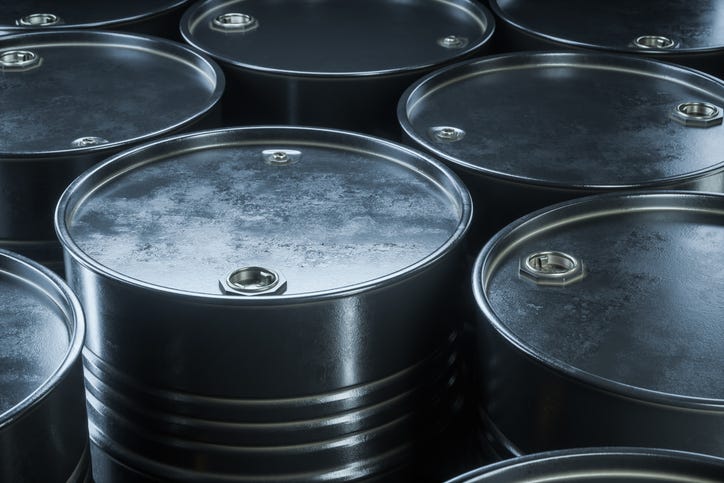
Late on Monday, leaders in the European Union came to an agreement to ban 90% of Russian crude oil by the end of this year, following the continued invasion of Ukraine.
The announcement came after months of speculation about whether or not the E.U., which is heavily dependent on Russian oil, would make the decision or not. Now that the decision has been made, prices have started to rise once again.
In the U.S., crude prices rose to $119.42 per barrel, with U.S. crude futures for July going up 3% and Brent crude futures rising 1.73%, according to CNBC.
The move is set to immediately stop 75% of Russian oil imports, according to the president of the European Council, Charles Michel.
Russia has continued to face sanction after sanction for its invasion of Ukraine, which is entering its fourth month. The decision to ban Russian crude from the E.U. was initially slowed by Hungary, whose leader Viktor Orban is on friendly terms with Russian President Vladimir Putin.
Now, this embargo will be a part of the E.U.'s sixth sanction package on Russia, which has shown no sign of ending its war in Ukraine.
"The European Council agrees that the sixth package of sanctions against Russia will cover crude oil, as well as petroleum products, delivered from Russia into Member States, with a temporary exception for crude oil delivered by pipeline," a statement from the European Council said.
As for gas prices in the U.S., the current national average is at an all-time high of $4.62 per gallon, according to AAA. A month ago, that price was $4.17, and a year ago, it was around $3.
Patrick De Haan from the gas monitoring site GasBuddy.com shared with News Talk 830 WCCO last month that if the E.U. were to move forward with a ban on Russian oil, prices could jump dramatically across the globe.
The U.S. was the first to ban Russian oil imports, and shortly after, there was a rise in prices. De Haan shared at the time that the U.S. was only taking in around 600,000 barrels a day from Russia. On the other hand, the E.U. has roughly 36% of its oil imports come from Russia.
"The E.U. gets four and a half million barrels a day from Russia," De Haan said. "That's a big number, and there is no rock to squeeze right now to find more oil."

